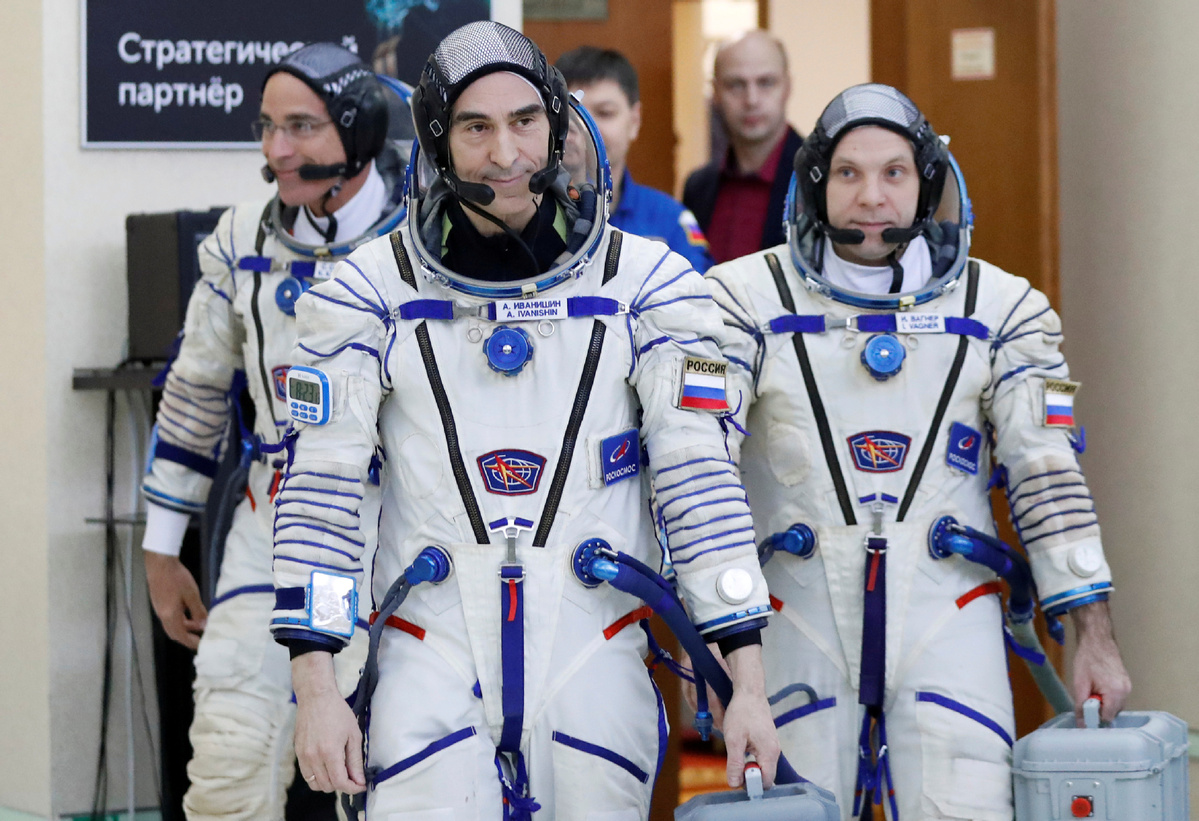Russia seeks to counter space threats
By REN QI in Moscow | China Daily | Updated: 2020-06-04 10:12

Potential new theater of war prompts Putin decree adjusting nuclear stance
Russian President Vladimir Putin on Tuesday approved a key document that spells out the potential deployment of antimissile and strike weapons in space as posing one of the biggest military threats to the country.
Putin's endorsement of the document came in the form of a decree, which took effect immediately. As part of the adjustments to Russia's position on its nuclear deterrent, the president is empowered to use nuclear weapons in response to a conventional strike targeting the country's critical government and military infrastructures.
The document was published online amid arms control tensions between Russia and the United States over the future of New START, the last major pact regulating their nuclear arsenals.
The document stresses that the national policy on Russia's nuclear deterrent is of a defensive nature and is aimed at maintaining the potential of its nuclear forces at a level sufficient for ensuring nuclear deterrence.
In line with Russian military doctrine, the document reaffirms that Moscow can use nuclear weapons in response to a nuclear attack, while adding the provision that they can be used to counter aggression involving conventional weapons that "threaten the very existence of the state".
The policy document also offers a detailed description of the situations that could trigger the use of nuclear weapons. They include the use of nuclear weapons or other weapons of mass destruction against Russia or its allies and an attack with conventional weapons that threatens Russia's sovereignty and territorial integrity.
The buildup of conventional forces near Russia's borders and the deployment of missile defense assets and space-based weapons are among the threats identified by Moscow in the new document.
"The Russian Federation views nuclear weapons solely as a means of deterrence whose employment is a last resort and forced measure, and is taking all necessary efforts for reducing the nuclear threat and preventing the escalation of interstate relations that can provoke military, including nuclear, conflicts," the document reads.
The Tass news agency said the document shows Russia's nuclear deterrent is aimed at ensuring that potential enemies are aware of the inevitable retaliation in the event of aggression against Russia and its allies.
Among major military dangers that may grow into military threats to Russia and require nuclear deterrence for neutralizing them, the document highlights "the deployment of missile shield systems and capabilities, intermediate-and shorter-range cruise and ballistic missiles, precision non-nuclear and hypersonic weapons, strike drones and directed-energy weapons by the states that view the Russian Federation as a potential enemy".
US 'super-duper missile'
The US had earlier announced plans for developing hypersonic missiles. US President Donald Trump said Washington was working on a "super-duper missile" that was 17 times faster than all current versions.
Russia's nuclear deterrence will take into account a potential enemy's deployment of hypersonic and laser weapons, as well as missiles and strike drones, according to the state policy.
Russian officials have called the US-led missile program and its plans to put weapons into orbit "a top threat", arguing that the new capability could tempt Washington to strike Russia with impunity in the hope of fending off a retaliatory strike.
Amid the tensions, the Kremlin has repeatedly voiced concern about the deployment of US and allied forces in the Baltics and NATO drills near Russia's borders.
Moscow and Washington withdrew from the 1987 Intermediate-range Nuclear Forces Treaty last year. Russia has offered to extend the New START, which is due to expire in February.
Agencies contributed to this story.
























